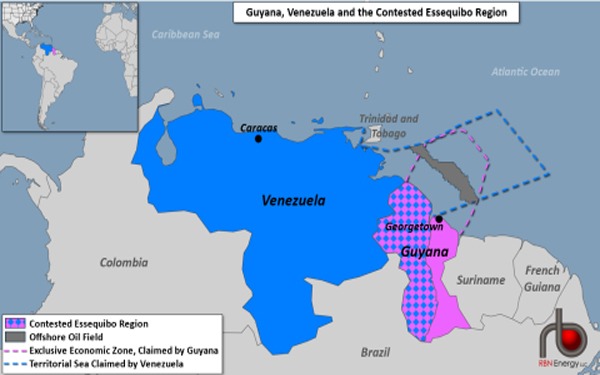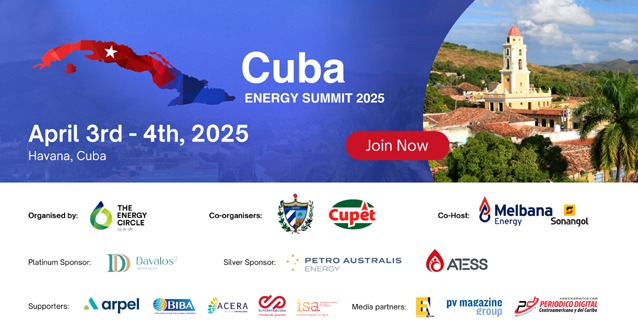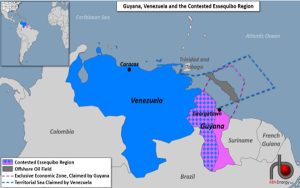Government seeking options to re-offer Corentyne block. Exxon continues to dominate Guyana’s oil industry

Marianna Parraga and Kemol King, Reuters
GEORGETOWN
EnergiesNet.com 02 21 2025
Guyana expects to soon sign an oil production-sharing agreement with a consortium led by France’s TotalEnergies (TTEF.PA), opens new tab that will allow it to explore an offshore area, Energy Minister Vickram Bharrat told Reuters.
Guyana is the world’s fastest-growing oil-producing country and is on course to reach capacity of 940,000 barrels per day this year – nearly 1% of global supply – up from an output of 616,000 bpd last year.
A consortium led by U.S. major Exxon Mobil (XOM.N), opens new tab produces all Guyana’s oil. The government, which has sought to diversify the sector, awarded TotalEnergies’s consortium the block in an auction in 2023.
As well as the agreement with TotalEnergies, at least three other contracts for exploration blocks awarded in that auction should be signed this year, Bharrat said in an interview with Reuters on the sidelines of an industry conference in the capital Georgetown on Wednesday.
Guyana is also exploring options to reoffer an offshore block where a consortium by Toronto-listed Frontera Energy (FEC.TO), opens new tab and CGX Energy (OYL.V), opens new tab made oil discoveries, Bharrat said.
The Corentyne block was seen as the likely next area for development after Exxon’s success at the Stabroek block, where more than 11 billion barrels of recoverable oil and gas resources have been found.
Frontera and CGX’s license on Corentyne has expired, according to the government, which did not approve the consortium’s application to extend the license last year.
Earlier this month, the consortium said the government notified them of the license cancellation. The firms have sent a letter disputing the cancellation to the government, Bharrat said, which means the case could go to court.
“We have been very lenient with CGX, very helpful to them like we are with any company investing in Guyana, but there’s a limit too,” Bharrat said.
“There’s only so much we can bend… without breaking our laws. And there was no legal ground for me to extend (the license),” he added.
Frontera and CGX discovered light oil and condensate in Corentyne in 2022 and 2023, but failed to complete an appraisal of the block in 2024.
In 2023, Frontera said the company was looking for investors to help finance development of the project. The company has yet to disclose any partners.
“It’s both a capacity and a financial problem,” the minister said when asked about the consortium’s struggles to complete the mandatory exploration program. Delays in the delivery of drilling equipment contributed, he added.
Frontera and CGX did not immediately reply to a request for comment.
The government could open a bidding round to reoffer the block or negotiate directly with interested parties, Bharrat said.
“Once it’s completely cleared, I think there will be a lot of companies interested in it,” he said.
Corentyne could still be developed fairly soon, he said, but the Exxon group would continue to dominate Guyana’s oil industry in the coming years.
CONTRACTS TO COME
The government and the Exxon consortium have yet to agree terms for exploring another area the group won in the 2023 auction, he added.
The consortium and the government recently reached an agreement on a portion of Stabroek to be returned to the government this year, Bharrat said. The areas are scattered across the block, however, so they might need to be delimited again to be reoffered in the future, he added.
The government is forecasting average oil output of 675,000 bpd this year versus 616,000 bpd in 2024. Guyana expects to receive one or two cargoes this year as a share of oil produced at Exxon’s fourth floating output facility, which is expected to begin production in the third quarter, the minister said.
Guyana last year became Latin America’s fifth largest crude exporter after Brazil, Mexico, Venezuela and Colombia.
Reporting by Marianna Parraga and Kemol King; Editing by Simon Webb and Nia Williams
reuters.com 02 20 2025












